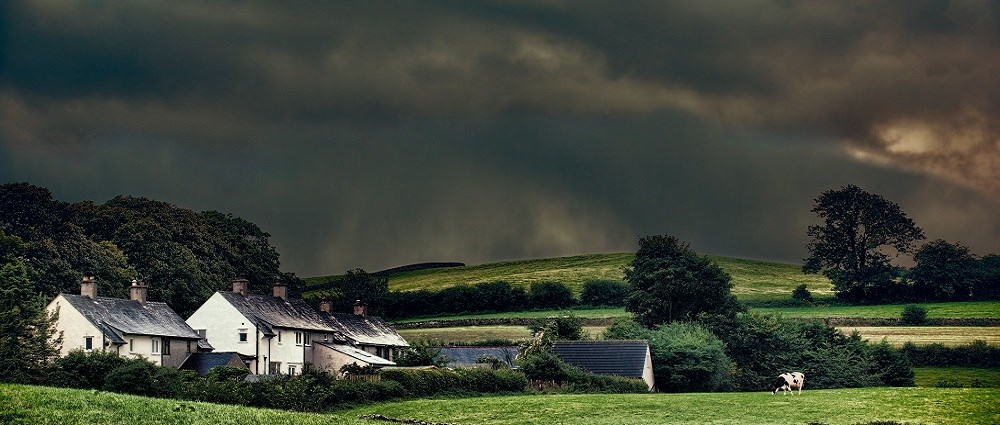Protect your home against stormy weather
Severe or stormy weather can cause all sorts of trouble for your home, and can sometimes result in serious damage to your property and possessions.
Often damage is unavoidable, but there are precautions you can take to minimise the risks from severe weather. We’ve put together some useful hints and tips about what you can do when it comes to storms or flooding.
What to do if bad weather is forecast:
- Secure any garden furniture, tools, or ornaments that could get blown around in high winds.
- If possible, park your car in a garage or under cover, or move it away from buildings and trees.
- Make sure you have a few emergency items to hand, such as a torch and spare batteries in case of a power cut, as well as warm clothing and blankets.
- Stock up on non-perishable food items, in case you can't get to the shops for a few days.
- Unplug any non-essential electrical devices, particularly computers and TVs, to avoid damage if there’s a power surge from a lightning strike.
- Prior to the bad weather, keep an eye on news and weather reports on TV, radio, and the internet, such as the Met Office website.
What to do if you’re affected by flooding:
- If you feel you’re at risk of being flooded, move as many of your possessions out of harm’s way if possible, such as an upper floor
- Make a photographic record of any damage that occurs, and avoid throwing anything away unless you’ve catalogued it with your camera first
- Don’t use any electrical or gas appliances until they've been checked and cleared by a qualified engineer
- You can report a new claim 24/7 using our online form or by calling 0345 122 3281 Monday to Friday 8.00am-8pm or Saturday and Sunday & Bank holidays 9am-5pm, with our overnight teams available for emergencies outside of these hours.
Flood Recovery Guide
If your home has been flooded, you can download this Flood Recovery Guide published by Know Your Flood Risk. It explains everything you need to know, and what you can expect to happen before your home can get back to normal.
What to do if you’re unable to stay in your house due to damage
If conditions in your home are so severe that you’re unable to live there until repairs are made, the reasonable cost of temporary accommodation, whether this is a short stay in a hotel, or the rental of another property, may be covered by your insurance. The amount that can be refunded will depend on your policy and level of cover. An inconvenience allowance could also be provided if you decide to stay with friends or family.
If you need a deposit for a rental property then you may be able to get assistance with this, though the amount needed will be deducted from the final settlement made for alternative accommodation.
If you need alternative accommodation, contact your insurer straight away, so they can walk you through next steps. That way, there's no risk of incurring costs that may not be covered in your policy.
Getting your home back to normal
Once the weather is back to normal and your house is free from flood water, the restoration process can begin. A professional restoration company will do the necessary work, as directed by a loss adjuster. Personal items that were damaged or lost will be replaced or restored, so you can get your home back to normal as soon as possible.

